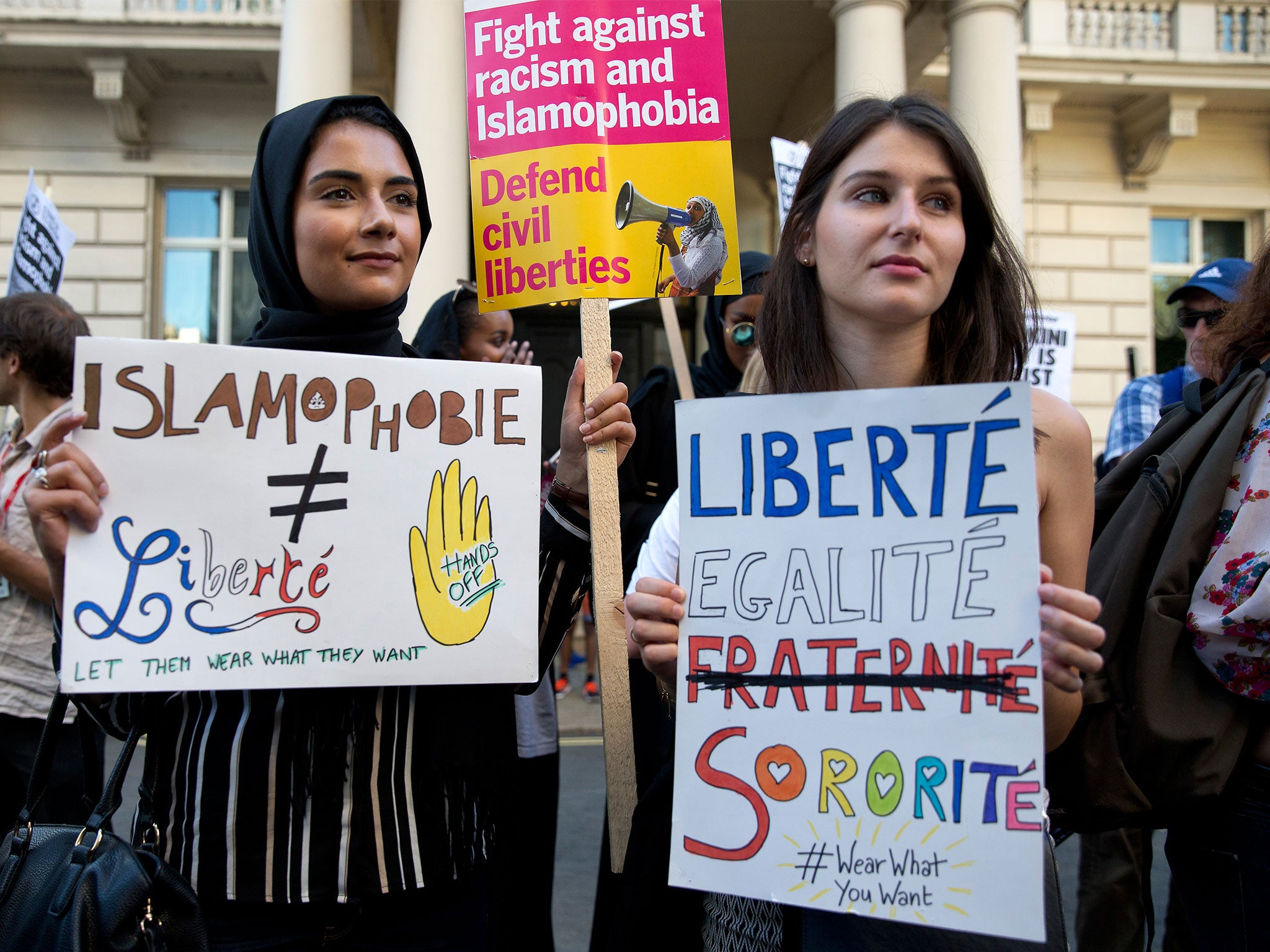Burkini ban: United Nations condemns French laws for 'fuelling intolerance and stigmatisation of Muslims'
'These clothing bans have increased tensions and may undermine the effort to fight extremism'
The United Nations has condemned burkini bans for “fuelling religious intolerance and the stigmatisation of Muslims in France” after the country’s highest court ruled they were illegal.
Rupert Colville, a spokesperson for the UN High Commissioner for Human Rights, welcomed the State Council’s finding that prohibiting beachwear worn by some women to cover the face and body was a grave and illegal breach of fundamental freedoms.
“We fully understand - and share - the grief and anger generated by the terrorist attacks carried out in France in recent months,” he told a briefing in Geneva.

“However, these decrees do not improve the security situation but rather fuel religious intolerance and the stigmatisation of Muslims in France, especially women.
“By stimulating polarisation between communities, these clothing bans have only succeeded in increasing tensions and as a result may actually undermine the effort to fight and prevent violent extremism.”
Mr Colville urged all French seaside resorts to have brought in burkini bans to heed last week’s court ruling and not maintain “discriminatory” systems allowing fines and arrests until the end of the holiday season.
The case specifically related to rules brought in by the commune of Villeneuve-Loubet but set a nationwide precedent, incensing local mayors attempting to implement the controversial prohibitions.
International human rights law only allows limitations on manifestations of religious belief in strict circumstances, such as for public order or safety, and only then when they are demonstrably necessary and proportionate.
Despite arguments made by French officials over hygiene and a supposed risk to public order, Mr Colville said women choosing to wear a burkini “cannot be blamed for the violent or hostile reactions of others”, adding: “Any public order concerns should be addressed by targeting those who incite hatred or react violently, and not by targeting women who simply want to walk on the beach or go for a swim wearing clothing they feel comfortable in.
“Nor can it be claimed that such a ban on beachwear is necessary on grounds of hygiene or public health.”
He also dismissed arguments made by supporters of the ban claiming it supported gender equality by combating restrictive clothing, saying “humiliating and degrading” law enforcement cannot enhance freedom.
A French court overturned a ban on burkinis issued in Cannes on Tuesday, finding no proven risks to outweigh the restriction.
Legal debates on the issue have been closely watched after photos of armed police surrounding a Muslim woman as she removed her top on a beach in Nice sparked outrage.
Prime Minister Manual Valls, who supported the bans saying they represented the “enslavement of women”, made a new reference to the controversy with a comment on Marianne, an allegorical figure of the French Republic.
During a socialist meeting in southern France he said: “Marianne, the symbol of the Republic, is bare breasted because she's feeding the people, she doesn't wear a veil because she's free.”
Historians attacked Mr Valls for allegedly misinterpreting the allegorical figure, who is sometimes shown wearing clothes and with her had covered.
Join our commenting forum
Join thought-provoking conversations, follow other Independent readers and see their replies
Comments